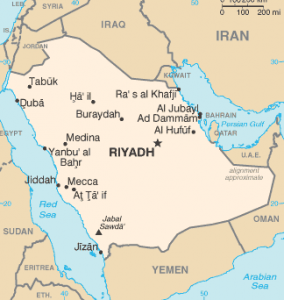With reports of 38 confirmed Middle East Respiratory Syndrome (MERS) since early September and 32 cases reported this month, the Saudi Arabia Ministry of Health (MOH) is admitting that the novel virus is still a threat in the Kingdom.

This follows the reporting of 6 cases during the past 24 hours, including one fatality.
Of the recent surge in MERS cases in the Kingdom, the city of Taif has been hit exceptionally hard with 17 cases. Riyadh has also reported an uptick in cases.
According to Anees Sindi, deputy chief of the Command and Control Center, “The available evidence indicates that camels transmit Middle East Respiratory Syndrome coronavirus (MERS-CoV) to humans, who then infect each other through direct contact with droplets that contain the virus.”
From June 2012 to present, Saudi Arabia has reported 786 confirmed MERS cases and 334 deaths.
The World Health Organization says until more is understood about MERS-CoV, people with diabetes, renal failure, chronic lung disease, and immunocompromised persons are considered to be at high risk of severe disease from MERS‐CoV infection. Therefore, these people should avoid close contact with animals, particularly camels, when visiting farms, markets, or barn areas where the virus is known to be potentially circulating. General hygiene measures, such as regular hand washing before and after touching animals and avoiding contact with sick animals, should be adhered to.
Food hygiene practices should be observed. People should avoid drinking raw camel milk or camel urine, or eating meat that has not been properly cooked.


So now even the Saudi Health Ministry thinks Muhammad was wrong to prescribe camel urine as medicine. LOL!
Our vision is to deliver a modern and science driven approach to Physiotherapy – allowing you to live a longer and pain free life. Working within our elite healthcare and performance centre our services include Physiotherapy, Chiropractic, Exercise Physiology, Podiatry, Headache specialists, Pilates, Dietetics, Massage, Bike Fitting and Running Biomechanics